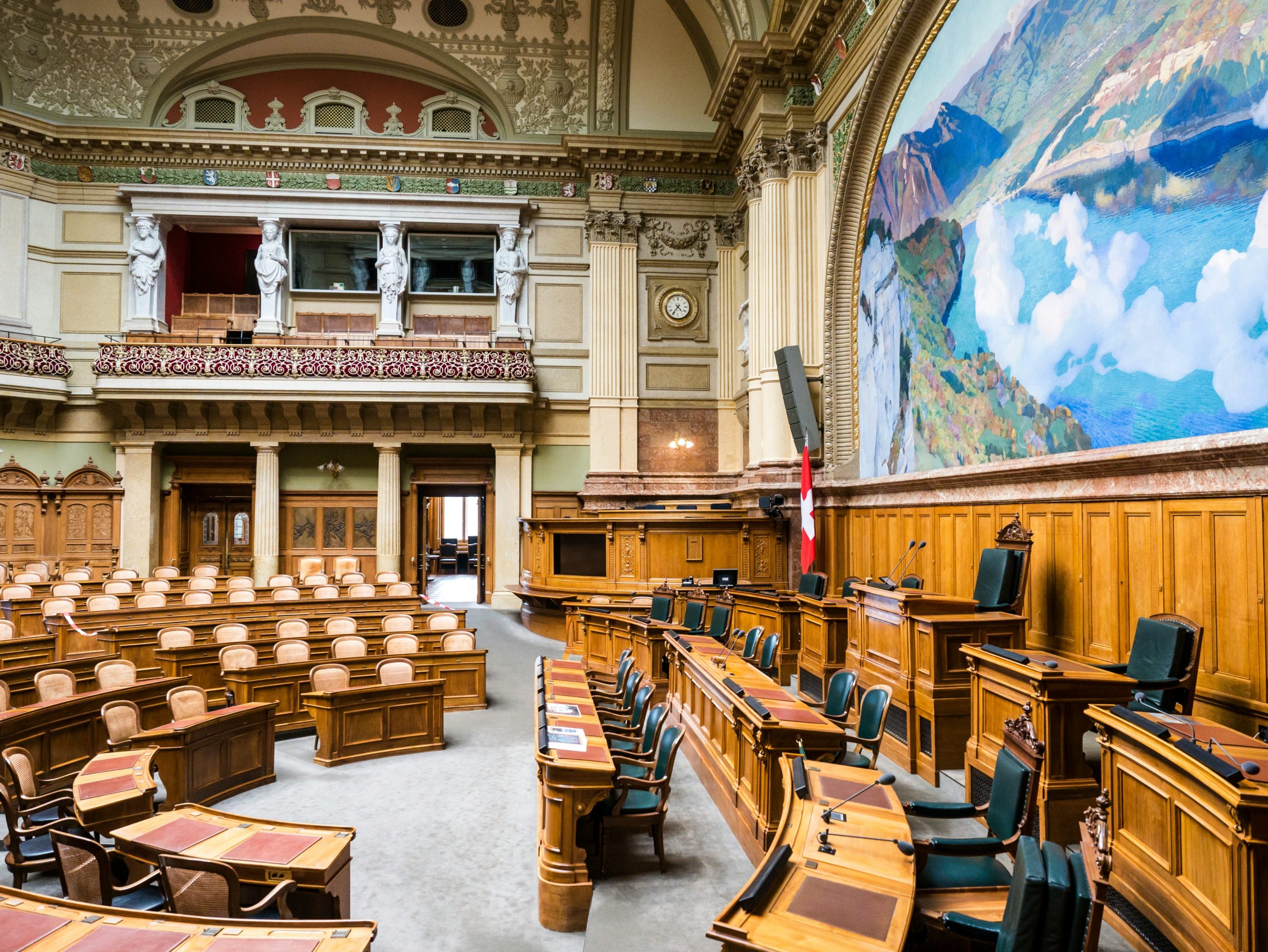SWITZERLAND – GOVERNMENT PROFILE
Switzerland leads by example through its national legislation, requiring Swiss private security companies operating in complex environments to be a Member of ICoCA

Why does Switzerland actively support and participate in ICoCA?
Fostering peace and security is a top priority in the Foreign Policy Strategy of Switzerland. Our support for the International Code of Conduct Association (ICoCA) is consistent with our obligation to the universal protection of human rights, which is also enshrined in the Swiss Federal Constitution.
ICoCA provides an important platform for engagement between responsible stakeholders from the private security industry and civil society. The sector is growing and becoming increasingly significant. It is therefore important for Switzerland to work alongside the various actors in it. We do this via the Peace and Human Rights Division in collaboration with the International Security Division of the Federal Department of Foreign Affairs. The link between security and human rights is key: If the private security sector is managed and supervised properly, it can develop a positive influence on the respect for human rights, thereby contributing to a positive climate conducive to peace and democracy.
How does Switzerland support ICoCA?
The Swiss government has been a primary supporter of ICoCA from its inception in 2013. The contribution of the Swiss government remains critical, and it goes beyond financial support. As Chair of the Board of Directors, Switzerland plays a key convening role, connecting ICoCA to organisations and initiatives that have an interest in its mission. On the other hand, Switzerland leads by example through its national legislation, requiring Swiss private security companies operating in complex environments to be a Member of ICoCA.
In addition, Switzerland is also working with the Geneva Centre for Security Sector Governance (DCAF) to strengthen the role of civil society organisations in contributing to work of ICoCA through the monitoring of private security companies. For example, we have jointly organised seminars with law enforcement agencies and civil society organisations in Nigeria, Peru and the Democratic Republic of Congo. Amongst other things, participants are trained in the appropriate use of force in conflict situations.
Swiss support for ICoCA has proven both pioneering and anticipatory. Given the EU and other actors are developing mandatory human rights due diligence legislation, ICoCA is now well positioned to play a key role given its focus on human rights due diligence in the high-risk domain of private security provision.
What benefit does ICoCA bring to Switzerland and what benefits does it bring to other stakeholders?
Switzerland is recognised internationally as a neutral, independent and legitimate partner to promote international law. It has no special interests in the private security sector and is therefore an honest broker. As chair of the supervisory board of the ICoCA, Switzerland is well placed to encourage dialogue between civil society organisations, private businesses and states. In the past, Switzerland has always succeeded in finding compromise between members, despite the sensitivity of the topic.
ICoCA has also developed several pragmatic tools based on a voluntary commitment of security companies. For example, the guidance on gender equality and sexual violence: Thanks to the work of the Association, several other organisations now mention it as a reference, such as the FIFA, the UN Global Compact or the UN Working Group on Business and Human Rights.

Why should Swiss based organisations, whether for-profit or not-for-profit, as well as organisations headquartered in other countries introduce ICoCA Membership requirements in their tenders for private security services?
The demand for private security services is increasing, both in the context of the Russian aggression against Ukraine and in the aftermath of COVID. Private security companies are increasingly present in several aspects of our work or daily life. More governments are mandating private security companies to protect their representations abroad, but also for managing migration, to ensure border security or to protect facilities for asylum seekers. Some governments even use security companies to manage detention centers. It is of paramount importance that we as governments respect our obligations under international law, as recalled in the Montreux Document on private military and security companies (PMSCs). The Montreux Document provides a toolkit for governments to establish effective oversight and control over PMSCs, for example through contracts or licensing/authorisation systems. Using companies that are a member of ICoCA is a reliable way to ensure compliance with these obligations.
When we look at NGOs and international organisations, they also use private security companies, often to ensure the smooth running of humanitarian operations. In this regard, I would like to highlight the new publication of ICoCA on private security contracting in the humanitarian sector.
Finally, the client companies themselves, and especially multinationals, use private security companies to ensure the security of their activities. These clients of private security companies come from diverse sectors, such as the extractive sector, commodity trading, agriculture, food transformation or manufacturing. Security companies are present throughout the production and supply chains, be it to ensure the security of transport, by land or by sea, or to ensure the security of mining or agricultural operations. For clients of private security services, using ICoCA certified providers could contribute to the harmonious coexistence between companies and the communities to sustainable development locally. We need to work together with the clients of private security companies and ensure that they integrate the International Code of Conduct for Private Security Service Providers into their recruitment processes.
Ambassador Simon Geissbühler, Head, Peace and Human Rights Division, Swiss Federal Department of Foreign Affairs
